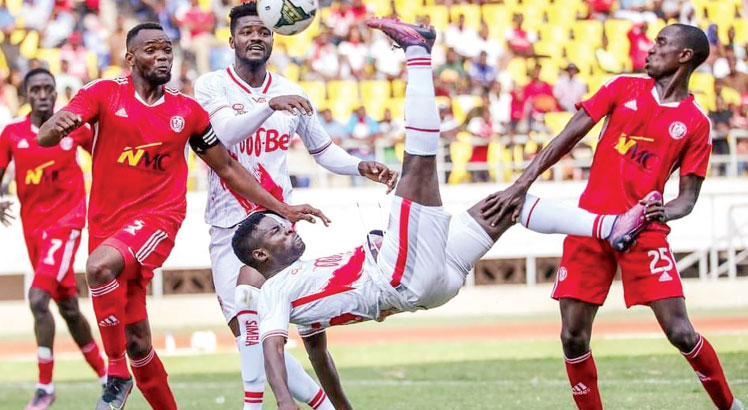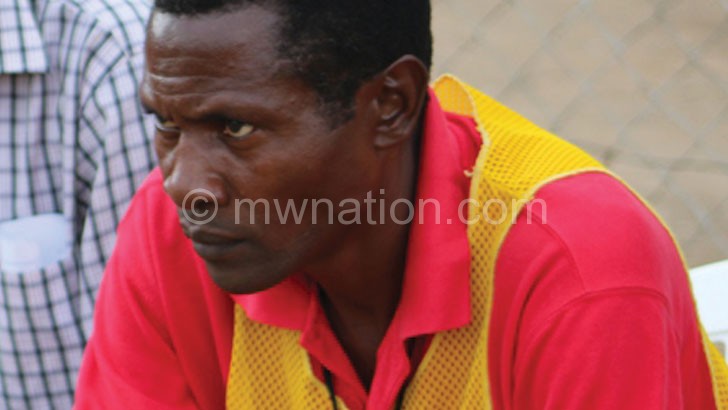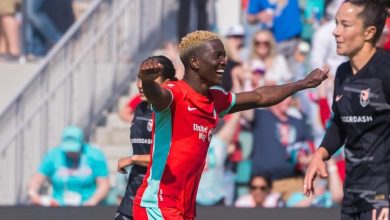FAM changes tune on local coaches
 FAM has defended its change of heart to stop hiring expatriate coaches, saying locals have nothing new to offer.
FAM has defended its change of heart to stop hiring expatriate coaches, saying locals have nothing new to offer.
Four years ago, Football Association of Malawi (FAM) announced that they would concentrate on local coaches after being let down by expatriates, notably Stephen Constantine and the late Burkhard Ziese.
However, early this week, FAM president Walter Nyamilandu announced that the inclination in the long term is to engage an expatriate coach.
Asked to explain the change of heart, Nyamilandu said: “We have tried literally every coach worth his name on the local scene and we have no option at this stage.”
Nyamilandu cited the recently fired Kinnah Phiri, Jack Chamangwana, Yasin Osman, Young Chimodzi, Eddington Ng’onamo, John Kaputa and Alex Masanjala as some of the local coaches who have had stints with the Flames.
He said while there is a crop of up-and-coming coaches, they cannot be thrown in the deep end at this stage.
“Some are with foreign clubs while others are with Super League teams and there are also others not attached to clubs, but they lack experience and they cannot be put at the helm,” said Nyamilandu.
New faces
Some of the up-and-coming coaches that some quarters have suggested for consideration include South Africa-based Ernest Mtawali, John Maduka and Patrick Mabedi.
However, reports reaching Weekend Nation indicate that FAM has recommended fired former deputy coach Chimodzi and Mtawali to steer the ship in the interim basis. Apparently, some soccer sommentators such as Moses Dossi and Pilirani Kachinziri also feel for the sake of transition, Chimodzi should take over and be assisted by Mtawali.
However, soccer commentator George Kaudza-Masina argued that some of the coaches that took charge of the Flames such as Osman, Kaputa, Ng’onamo and Masanjala still need to be tried because they worked with the Flames on a caretaker basis or for selected games.
“It is not fair to judge these coaches in the same manner as those that were hired on contract because the level of support and resources provided to them might not have been the same,” said Kaudza-Masina, who was a FAM executive committee member when the said coaches took charge of the Flames.
“Perhaps, on that basis, they need to be given the benefit of the doubt,” he said.
Kaudza-Masina also said it is high time up-and-coming coaches such as Mtawali, Maduka and Mabedi were considered for roles in the Flames.
“If the inclination is to hire an expatriate, then this is the right time to consider the South Africa-based trio to understudy the expatriate because they have gained experience working with top South African clubs,” he said.
Expatriate coaches
Another soccer commentator Charles Nyirenda said the question is whether the country is now ready to deal with expatriate coaches.
“Considering the way we do things, I doubt if we are really ready to deal with expatriates because they will give you a plan of action that will require resources and the usual bit about funds not being there will come up.
“So, my take would be that we are not ready for an expatriate,” said Nyirenda who once served as FAM chief executive officer.
He said it is time the country developed capacity among local coaches, citing Mtawali, Mabedi and Maduka as examples.
History has shown that local coaches have performed better than expatriates. For example, the coaches that guided the Flames to qualify for the Africa Cup of Nations twice were the late Henry Moyo (1984) and Kinnah (2010).
Besides, the Flames’ best ranking (53) in 1992 was also under another local coach, the late Matthias Mwenda.
The late Reuben Malola also guided the team to win the East and Central Africa Senior Challenge Cup in 1978 and finished third at the 1987 All Africa Games in Kenya.
Recently, Ghanaian coach Stephen Keshi strongly argued against the role of white coaches in African football.
While Frenchman Herve Renard won Zambia the 2012 Africa Cup of Nations, Keshi has reservations on most expatriates who work on the continent.
“The white guys are coming to Africa just for the money. They are not doing anything that we cannot do. I am not racist, but that’s just the way it is” he said.
Keshi, who won the Nations Cup as a player in 1994, was also critical of the attitude of some of the continent’s football governing bodies.
He feels that there is a substantial difference in the way local and foreign coaches are treated across Africa whereby expatriate coaches tend to get more support than locals.





